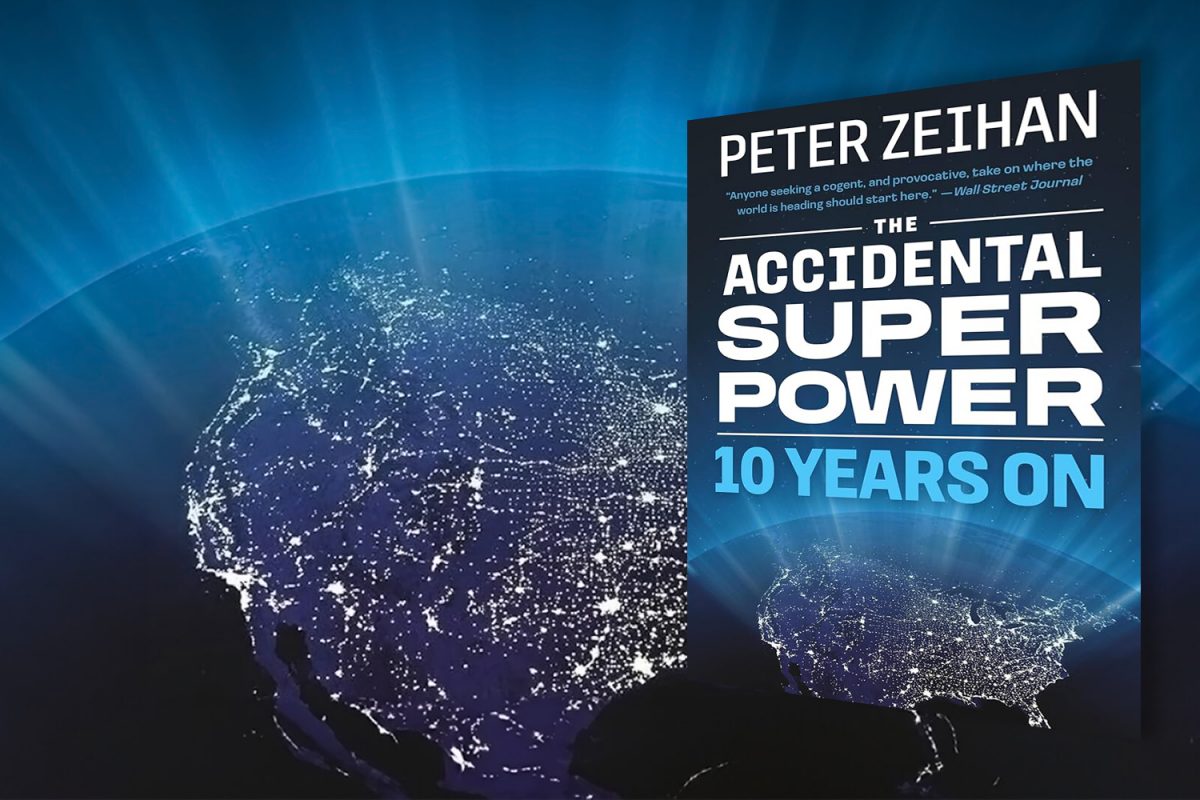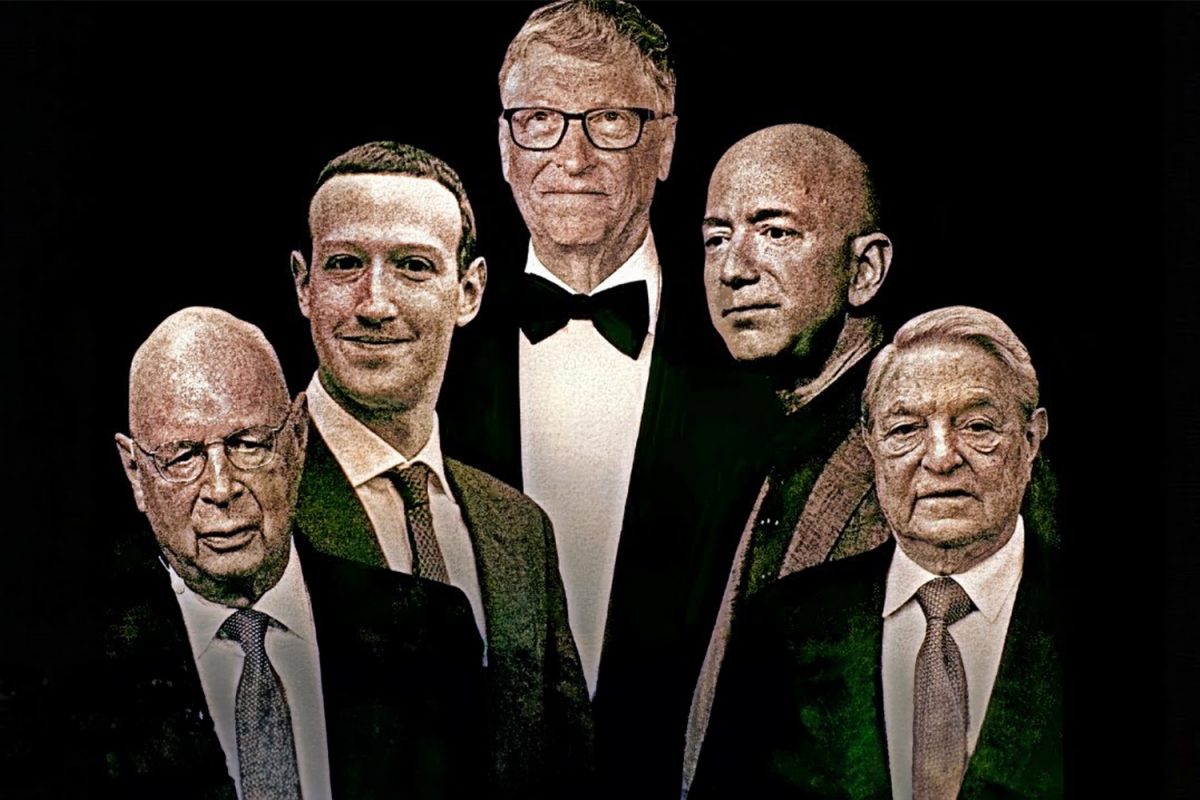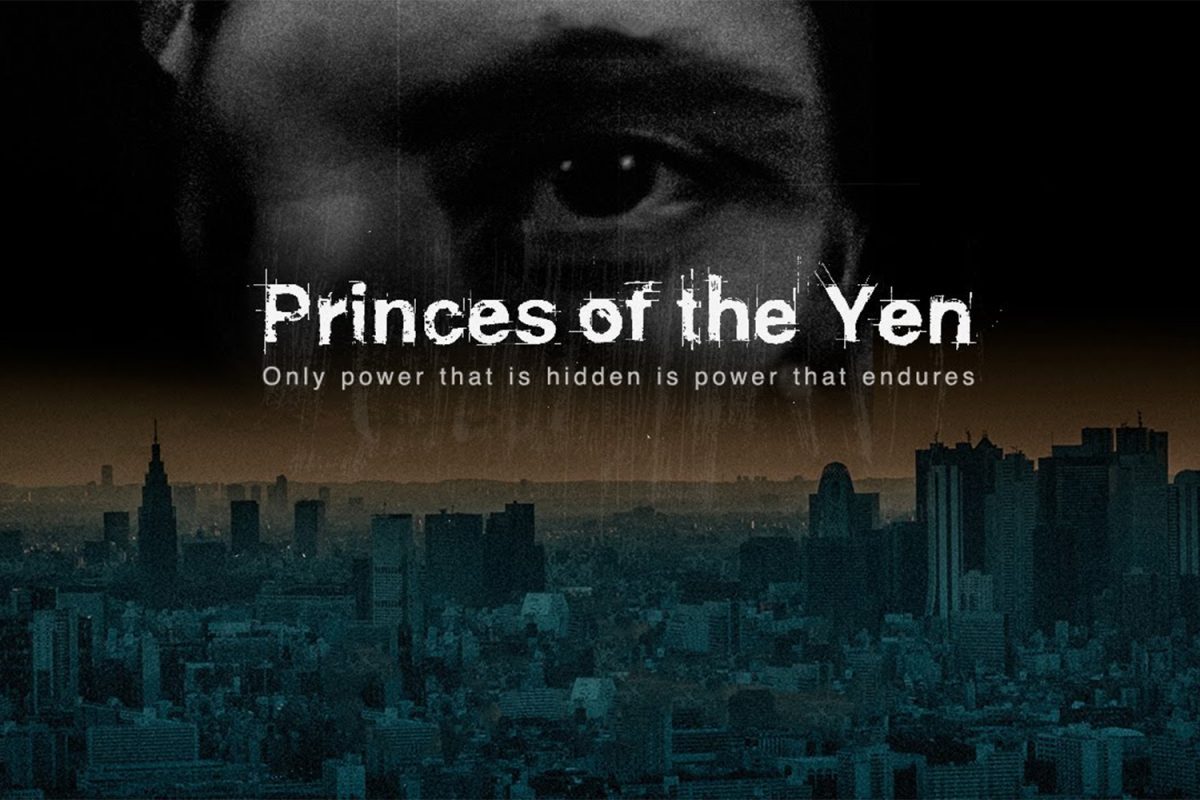As the end of 2021 fast approaches this serves as a good opportunity to share some of the favourite books that have informed our analysts.
The Calm Before the Storm: America’s Discord, the Coming Crisis of the 2020s, and the Triumph Beyond
George Friedman
2020
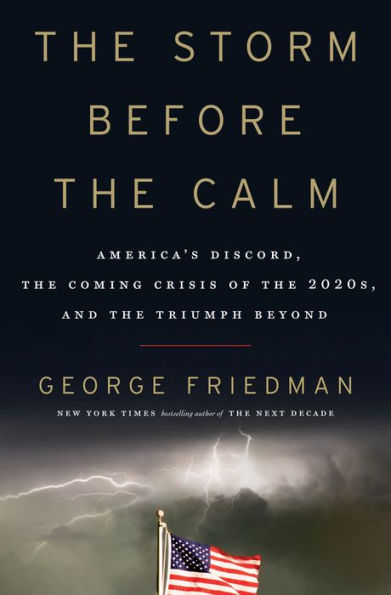 In George Friedman’s latest publication he builds the case that the US is not in decline and has some distance to go. His argument is given a historical anchor in his latest release. Friedman builds his model in 800 pages, steeped in history that the US is transiting through the latest of a series of waves or cycles that have permeated American history since white Europeans first came ashore and founded what was then a British colony. Friedman argues there have been two cycles, one institutional and the other economic, roughly every 80 years. It happens that, for the first time, these cycles are coinciding to create a bumpy ride for America before the emergence of a new dawn in a decade or so. What we found insightful was the wealth of well-told historical detail, around the wars against the colonialists, the Civil War, and World War II and the evolution of the United States of America.
In George Friedman’s latest publication he builds the case that the US is not in decline and has some distance to go. His argument is given a historical anchor in his latest release. Friedman builds his model in 800 pages, steeped in history that the US is transiting through the latest of a series of waves or cycles that have permeated American history since white Europeans first came ashore and founded what was then a British colony. Friedman argues there have been two cycles, one institutional and the other economic, roughly every 80 years. It happens that, for the first time, these cycles are coinciding to create a bumpy ride for America before the emergence of a new dawn in a decade or so. What we found insightful was the wealth of well-told historical detail, around the wars against the colonialists, the Civil War, and World War II and the evolution of the United States of America.
Adnan Khan
The Afghanistan Papers: A Secret History of the War
Craig Whitlock
2021
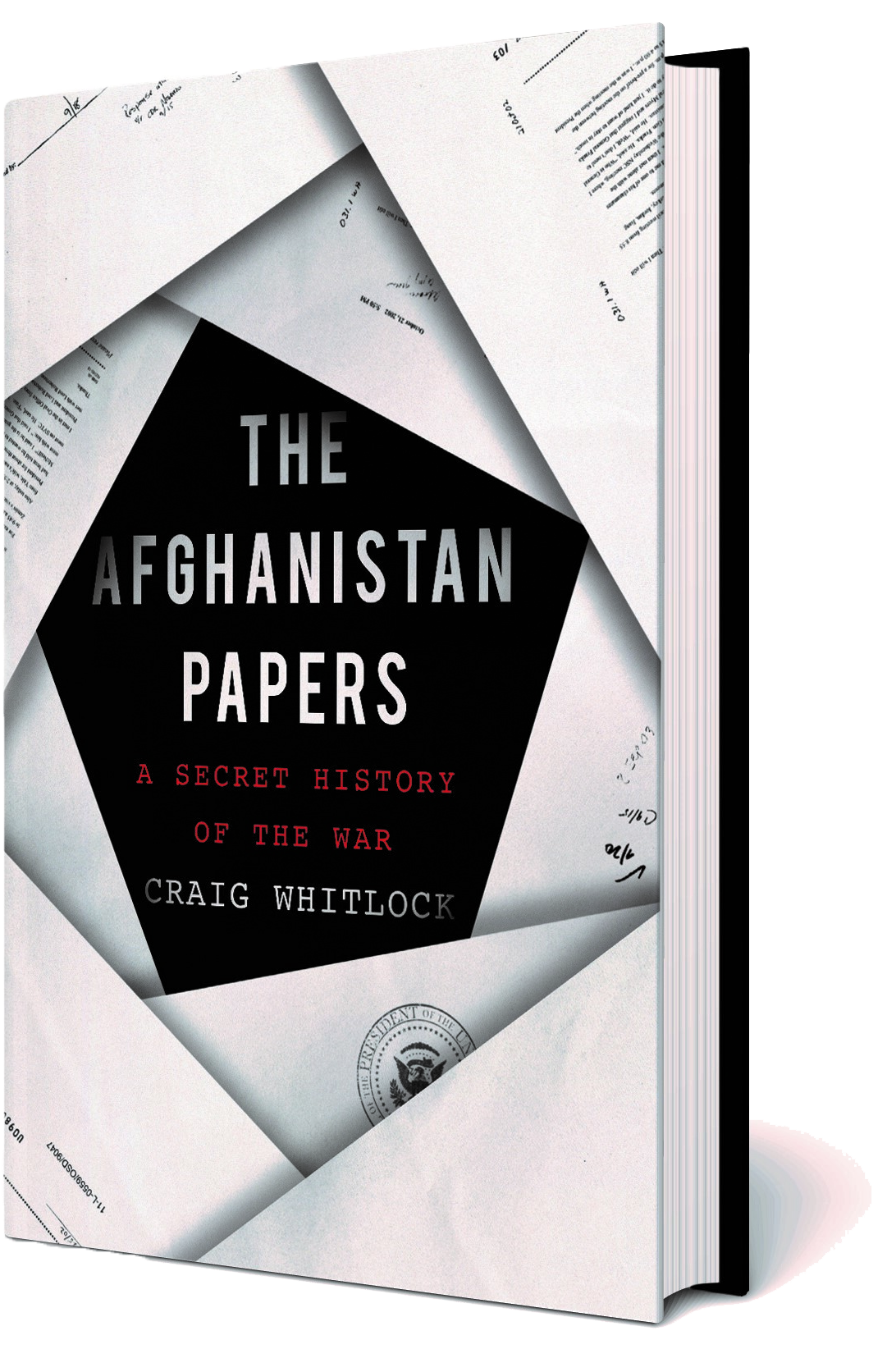 This book is based upon the project titled ‘Lessons learned’ carried out by a US federal agency, the Office of the Special Inspector General for Afghanistan Reconstruction, or SIGAR. The agency interviewed hundreds of participants in the Afghan war which was intended to diagnose policy failures in Afghanistan. SIGAR carried out interviews over 13 years with various policy makers, soldiers, politicians and others that participated in the war in Afghanistan. What makes this book an important read is the frankness of those who were interviewed. They were speaking frankly because they assumed their remarks would not become public. The Afghanistan Papers is a book about failure and about lying about failure, and about how that led to yet worse failures. For our geopolity analysts the book looks at the Afghan occupation from all perspectives and this provides many details that were not known previously. This makes this book essential reading in understanding how the US has become the latest victim in the graveyard of empires.
This book is based upon the project titled ‘Lessons learned’ carried out by a US federal agency, the Office of the Special Inspector General for Afghanistan Reconstruction, or SIGAR. The agency interviewed hundreds of participants in the Afghan war which was intended to diagnose policy failures in Afghanistan. SIGAR carried out interviews over 13 years with various policy makers, soldiers, politicians and others that participated in the war in Afghanistan. What makes this book an important read is the frankness of those who were interviewed. They were speaking frankly because they assumed their remarks would not become public. The Afghanistan Papers is a book about failure and about lying about failure, and about how that led to yet worse failures. For our geopolity analysts the book looks at the Afghan occupation from all perspectives and this provides many details that were not known previously. This makes this book essential reading in understanding how the US has become the latest victim in the graveyard of empires.
Adnan Khan
My Life with the Taliban
Abdul Salam Zaeef
2011
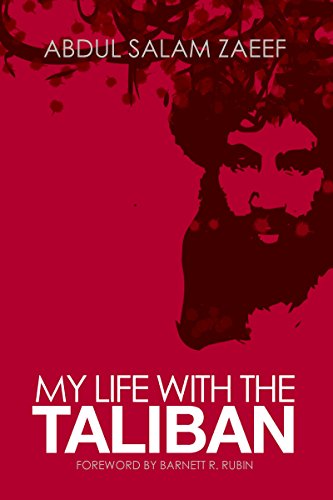 With the US withdrawal from Afghanistan our analysts were keen to get an insiders account and we got very lucky as Abdul Salam Zaeef, the former senior member of Taliban, his memoirs were just translated from Pashto. In 360 pages he gives a personal account of his life. Zaeef describes growing up in rural poverty in Kandahar province. Both of his parents died at an early age, and the Russian invasion of 1979 forced him to flee to Pakistan. He started fighting the jihad in 1983, during which time he was associated with many major figures in the anti-Soviet resistance, including Mullah Mohammad Omar and the emergence of the Taliban. Zaeef describes how he returned to a quiet life in a small village in Kandahar, but chaos soon overwhelmed Afghanistan as factional fighting erupted after the Russians pulled out. Disgusted by the lawlessness that ensued, Zaeef was one among the former mujahidin who were closely involved in the discussions that led to the emergence of the Taliban, in 1994. Zaeef then details his Taliban career as civil servant and minister who negotiated with foreign oil companies as well as with Afghanistan’s own resistance leader, Ahmed Shah Massoud. Zaeef outlines his time as the Taliban ambassador to Pakistan when the 9/11 attacks took place. He provides an account of the US intervention that toppled the Taliban and his hand over to American forces in Pakistan, notwithstanding his diplomatic status, and his four and a half years in prison (including several years in Guantanamo) before being released without having been tried or charged with any offence. My Life with the Taliban offers a personal insight into the rural Pashtun village communities that are the Taliban’s bedrock. It helps to explain what drives men like Zaeef to take up arms against foreigners invaders.
With the US withdrawal from Afghanistan our analysts were keen to get an insiders account and we got very lucky as Abdul Salam Zaeef, the former senior member of Taliban, his memoirs were just translated from Pashto. In 360 pages he gives a personal account of his life. Zaeef describes growing up in rural poverty in Kandahar province. Both of his parents died at an early age, and the Russian invasion of 1979 forced him to flee to Pakistan. He started fighting the jihad in 1983, during which time he was associated with many major figures in the anti-Soviet resistance, including Mullah Mohammad Omar and the emergence of the Taliban. Zaeef describes how he returned to a quiet life in a small village in Kandahar, but chaos soon overwhelmed Afghanistan as factional fighting erupted after the Russians pulled out. Disgusted by the lawlessness that ensued, Zaeef was one among the former mujahidin who were closely involved in the discussions that led to the emergence of the Taliban, in 1994. Zaeef then details his Taliban career as civil servant and minister who negotiated with foreign oil companies as well as with Afghanistan’s own resistance leader, Ahmed Shah Massoud. Zaeef outlines his time as the Taliban ambassador to Pakistan when the 9/11 attacks took place. He provides an account of the US intervention that toppled the Taliban and his hand over to American forces in Pakistan, notwithstanding his diplomatic status, and his four and a half years in prison (including several years in Guantanamo) before being released without having been tried or charged with any offence. My Life with the Taliban offers a personal insight into the rural Pashtun village communities that are the Taliban’s bedrock. It helps to explain what drives men like Zaeef to take up arms against foreigners invaders.
Mehvish Ali
Obama: A Promised Land
Barack Obama
2021
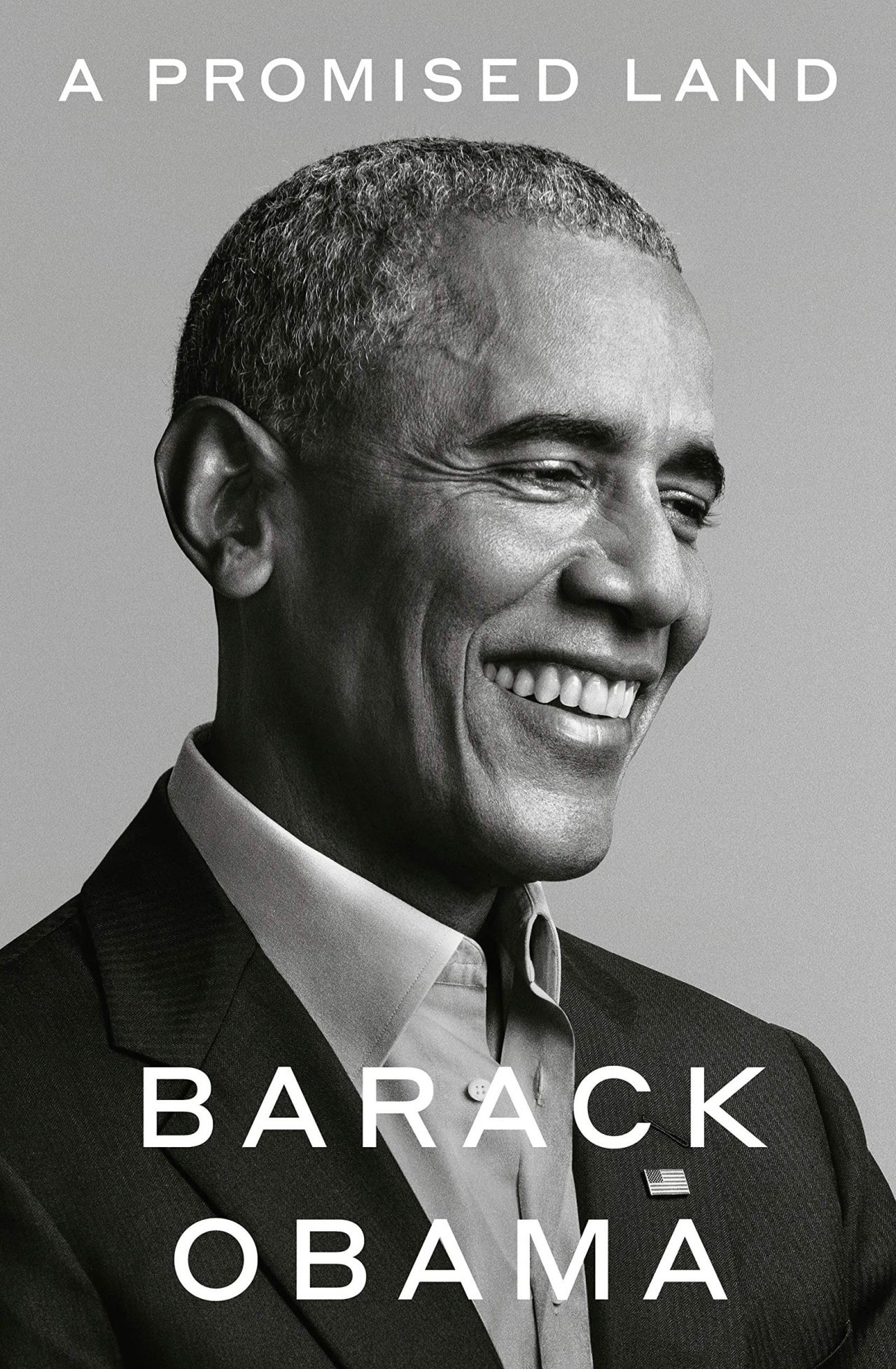 A Promised Land is the first volume of Barack Obama’s two-volume memoir. It outlines Obama’s early life and political career before detailing his time on the national political stage, beginning with his 2004 Senate campaign. It finishes in May 2011 with the capture of Osama bin Laden. In 700 pages Obama shows how little power the US President really has and how he found it difficult to stay focused and not get pulled into different crises all the time. The book is a personal account of Obama’s rise to the presidency and how he navigated his election campaign and then his first term as President. The book is littered with details of Obama’s emotions as he faces the global economic crisis in 2009, war in Libya, ordering drone attacks and trying to end the Afghan and Iraq wars. The memoir is a personal account and there is much that will likely be covered in the second and final part that covers the majority of his presidency.
A Promised Land is the first volume of Barack Obama’s two-volume memoir. It outlines Obama’s early life and political career before detailing his time on the national political stage, beginning with his 2004 Senate campaign. It finishes in May 2011 with the capture of Osama bin Laden. In 700 pages Obama shows how little power the US President really has and how he found it difficult to stay focused and not get pulled into different crises all the time. The book is a personal account of Obama’s rise to the presidency and how he navigated his election campaign and then his first term as President. The book is littered with details of Obama’s emotions as he faces the global economic crisis in 2009, war in Libya, ordering drone attacks and trying to end the Afghan and Iraq wars. The memoir is a personal account and there is much that will likely be covered in the second and final part that covers the majority of his presidency.
Massihollah Rohparwar
Modi’s India: Hindu Nationalism and the Rise of Ethnic Democracy
Christophe Jaffrelot
2021
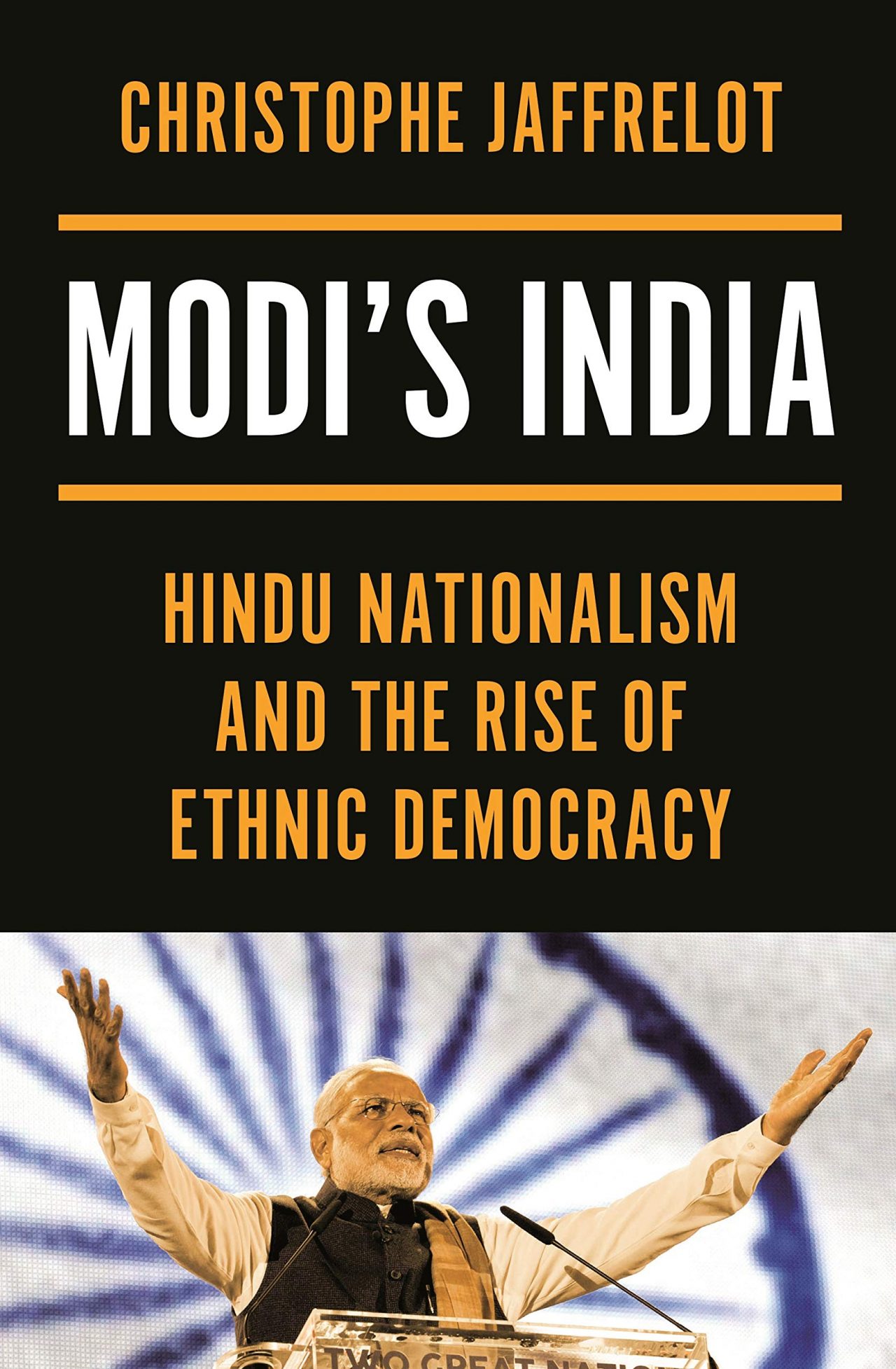 Indian democracy has been in a state of precipitous decline with the pace accelerating after the victory of the ruling Hindu nationalist Bharatiya Janata Party (BJP). Arguably the most in-depth scholarly contribution to this debate is the book published by noted scholar of contemporary Indian politics, Christophe Jaffrelot. The book laments India’s descent into authoritarianism and its possible collapse as a Democracy. Jaffrelot deftly traces Modi’s dramatic rise from a foot soldier of the paramilitary Rashtriya Swayamsevak Sangh (RSS)—a close affiliate of the ruling BJP—to chief minister of Gujarat in 2001 and then the national political stage 2014. The book covers Modi’s political journey as Chief minister of Gujarat marked by the 2002 anti Muslim pogrom which resulted in the massacre of 2000 Muslims, a dark event in the country’s fractured record of anti Muslim violence, and how Modi deftly turned this dark episode to his advantage, relying on his charisma and a sophisticated public relations campaign. The book documents how BJP leaders have nurtured a form of divisive politics, fueled by hate speech and deployed through the aggressive use of social media and distortions of history, that threatens to turn members of the country’s substantial Muslim minority of more than 200 million people into second-class citizens.
Indian democracy has been in a state of precipitous decline with the pace accelerating after the victory of the ruling Hindu nationalist Bharatiya Janata Party (BJP). Arguably the most in-depth scholarly contribution to this debate is the book published by noted scholar of contemporary Indian politics, Christophe Jaffrelot. The book laments India’s descent into authoritarianism and its possible collapse as a Democracy. Jaffrelot deftly traces Modi’s dramatic rise from a foot soldier of the paramilitary Rashtriya Swayamsevak Sangh (RSS)—a close affiliate of the ruling BJP—to chief minister of Gujarat in 2001 and then the national political stage 2014. The book covers Modi’s political journey as Chief minister of Gujarat marked by the 2002 anti Muslim pogrom which resulted in the massacre of 2000 Muslims, a dark event in the country’s fractured record of anti Muslim violence, and how Modi deftly turned this dark episode to his advantage, relying on his charisma and a sophisticated public relations campaign. The book documents how BJP leaders have nurtured a form of divisive politics, fueled by hate speech and deployed through the aggressive use of social media and distortions of history, that threatens to turn members of the country’s substantial Muslim minority of more than 200 million people into second-class citizens.
One of the enigmas discussed but unsatisfactorily explained is the continued rise in Modi’s popularity despite the worsening economic situation of the masses largely associated with the disastrous handling of the economy through the shock demonetisation program, mismanagement of GST rollout, mishandling of the covid crisis among many. Christophe Jaffrelot, who has covered India for many years, pessimistically concludes the country has changed, perhaps irreversibly, from a liberal secular polity a decade ago to a majoritarian ‘ethnic democracy’ today.
Shabih Ul Hasan
Diplomacy
Henry Kissinger
1995
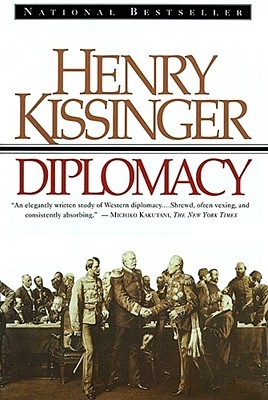 As epic as any written masterpiece can be, from its first sentence to the last, Diplomacy sets in motion an unrelentingly overwhelming narrative of political and diplomatic history. Henry Kissinger, who happens to be a Professor of History at Harvard University, recounts the settings of World Order from Cardinal Richelieu of France to the last decade of the 20th Century. Diplomacy iterates the major events that shaped global politics by dwelling into how America’s foreign relations came to be. Yet, in an erudite fashion, it started with the European powers and their embrace of the Balance of Power that was so much depended upon by Great Britain. It unfolded the origins of the very foreign policies we see great nations adopt today. Even more than twenty years after its release, diplomacy is a gem and a must read, not only to American statesmen, as the general theme of the book might exhibit but to every individual seeking to understand world order in-depth.
As epic as any written masterpiece can be, from its first sentence to the last, Diplomacy sets in motion an unrelentingly overwhelming narrative of political and diplomatic history. Henry Kissinger, who happens to be a Professor of History at Harvard University, recounts the settings of World Order from Cardinal Richelieu of France to the last decade of the 20th Century. Diplomacy iterates the major events that shaped global politics by dwelling into how America’s foreign relations came to be. Yet, in an erudite fashion, it started with the European powers and their embrace of the Balance of Power that was so much depended upon by Great Britain. It unfolded the origins of the very foreign policies we see great nations adopt today. Even more than twenty years after its release, diplomacy is a gem and a must read, not only to American statesmen, as the general theme of the book might exhibit but to every individual seeking to understand world order in-depth.
Umar Ahmed
Erdogan’s Empire: Turkey and the Politics of the Middle East
Soner Cagaptay
2019
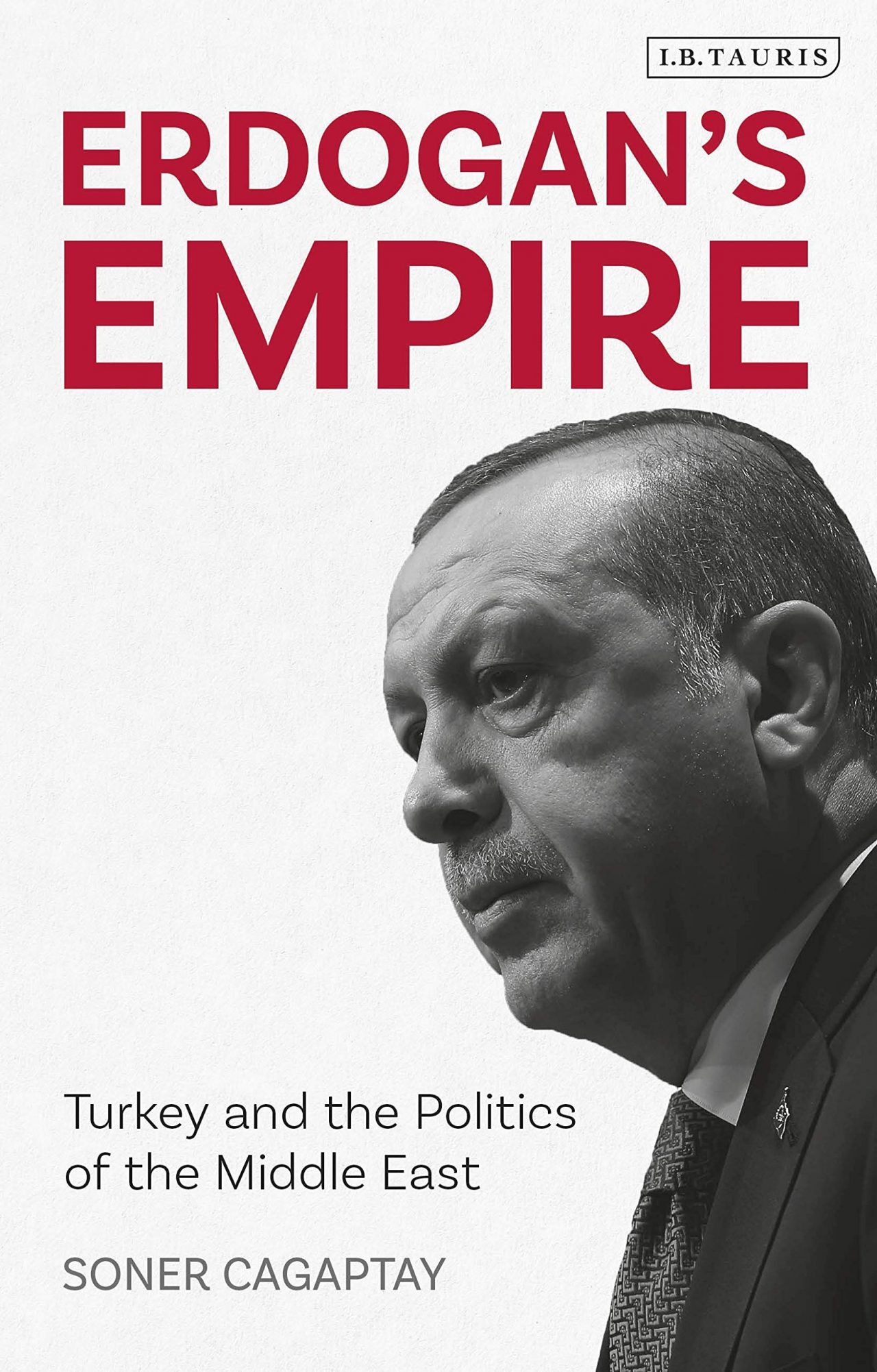 Soner Cagaptay is the director of the Turkish Research Programme at the Washington Institute for Near East Policy and has authored four volumes, scores of policy briefs and many reports about domestic and international Turkish politics. His latest book, Erdogan’s Empire: Turkey and the Politics of the Middle East, examines Turkey’s international trajectory under the leadership of the country’s current President and former Prime Minister Recep Tayyip Erdogan. The book makes reference to events in the latter stages of the Ottoman Empire and throughout the Kemalist republic to make sense of the changes that have transpired in Turkey since Erdogan first rose to power in 2003. The book illustrates how Erdogan, during the 2000s, manipulated and outmanoeuvred his various rivals, both foreign and domestic to maintain his position in Turkey. The book provides useful geopolitical analysis exploring Turkey’s relations, both historic and contemporary, with Russia, Iran, Europe, the Arab World, and the US. It also takes a look at Ankara’s outreach to sub-Saharan Africa under Erdogan, which is unprecedented. The book provides a good overview of where Turkey is today and worth reading for those trying to make sense of Turkey.
Soner Cagaptay is the director of the Turkish Research Programme at the Washington Institute for Near East Policy and has authored four volumes, scores of policy briefs and many reports about domestic and international Turkish politics. His latest book, Erdogan’s Empire: Turkey and the Politics of the Middle East, examines Turkey’s international trajectory under the leadership of the country’s current President and former Prime Minister Recep Tayyip Erdogan. The book makes reference to events in the latter stages of the Ottoman Empire and throughout the Kemalist republic to make sense of the changes that have transpired in Turkey since Erdogan first rose to power in 2003. The book illustrates how Erdogan, during the 2000s, manipulated and outmanoeuvred his various rivals, both foreign and domestic to maintain his position in Turkey. The book provides useful geopolitical analysis exploring Turkey’s relations, both historic and contemporary, with Russia, Iran, Europe, the Arab World, and the US. It also takes a look at Ankara’s outreach to sub-Saharan Africa under Erdogan, which is unprecedented. The book provides a good overview of where Turkey is today and worth reading for those trying to make sense of Turkey.
Nizal Hussain
The Room Where It Happened: A White House Memoir
John Bolton
2020
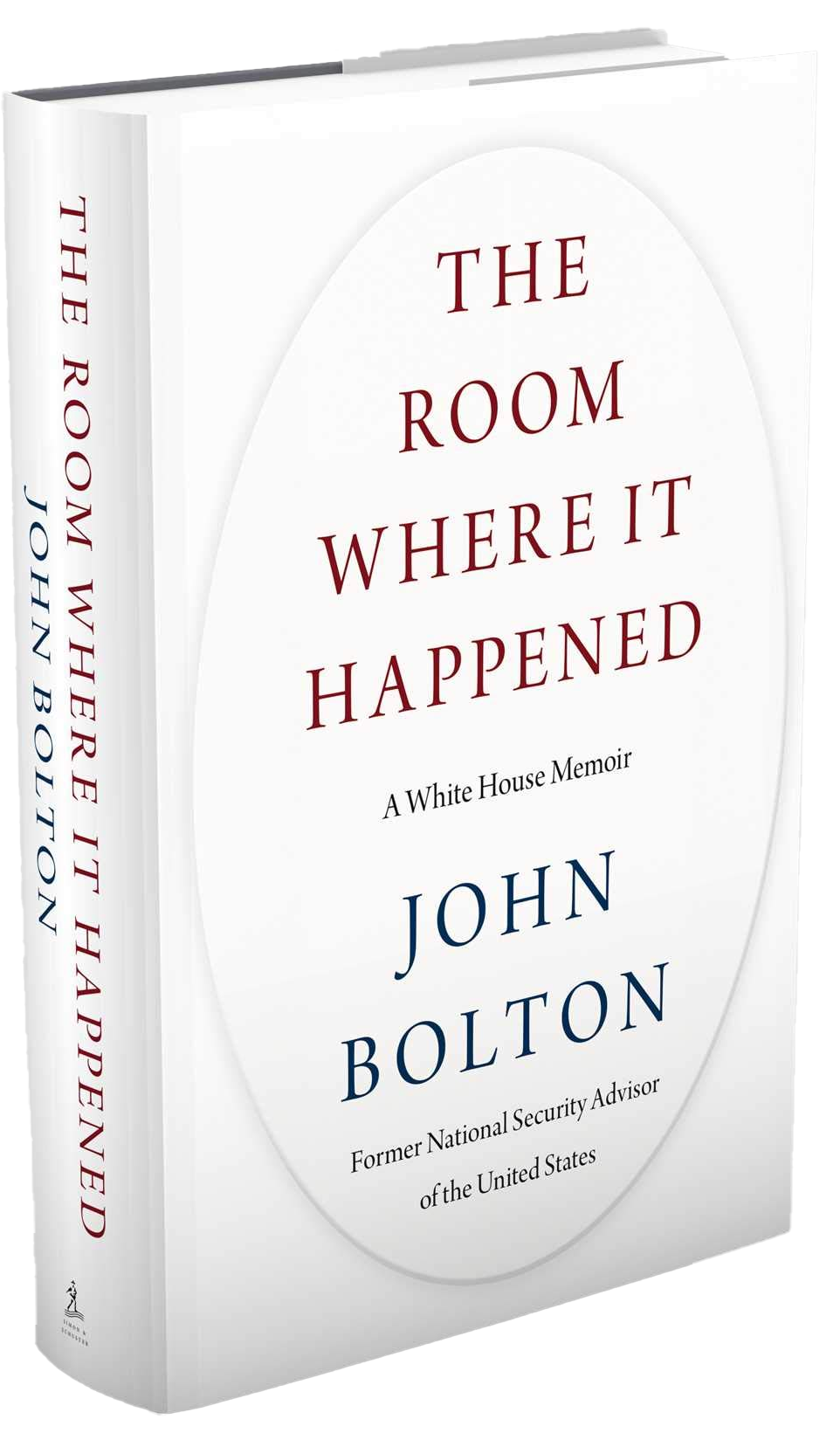 As President Trump’s National Security Advisor, John Bolton spent many of his 453 days in the room where it happened. The result is a White House memoir that is the most comprehensive and substantial account of the Trump Administration, and one of the few to date by a top-level official. This memoir is more an account of the Trump administration and the roller coaster ride. What Bolton saw astonished him: a President for whom getting re-elected was the only thing that mattered, even if it meant endangering or weakening the nation. “I am hard-pressed to identify any significant Trump decision during my tenure that wasn’t driven by reelection calculations,” he wrote. Bolton shows a President addicted to chaos, who embraced our enemies and spurned our friends, and was deeply suspicious of his own government. Bolton has filled this book’s nearly 500 pages with minute and often extraneous details, including the time and length of routine meetings. But underneath it all his obsession with his enemies – Iran, North Korea and the domestic media and the ‘High-Minded,’ former defence secretary Jim Mattis. The book is bloated with self-importance, but it provides a good account of the Trump administration.
As President Trump’s National Security Advisor, John Bolton spent many of his 453 days in the room where it happened. The result is a White House memoir that is the most comprehensive and substantial account of the Trump Administration, and one of the few to date by a top-level official. This memoir is more an account of the Trump administration and the roller coaster ride. What Bolton saw astonished him: a President for whom getting re-elected was the only thing that mattered, even if it meant endangering or weakening the nation. “I am hard-pressed to identify any significant Trump decision during my tenure that wasn’t driven by reelection calculations,” he wrote. Bolton shows a President addicted to chaos, who embraced our enemies and spurned our friends, and was deeply suspicious of his own government. Bolton has filled this book’s nearly 500 pages with minute and often extraneous details, including the time and length of routine meetings. But underneath it all his obsession with his enemies – Iran, North Korea and the domestic media and the ‘High-Minded,’ former defence secretary Jim Mattis. The book is bloated with self-importance, but it provides a good account of the Trump administration.
Anam Sultan
Tragedy and Hope: A History of the World in Our Time
Carroll Quigley
1966
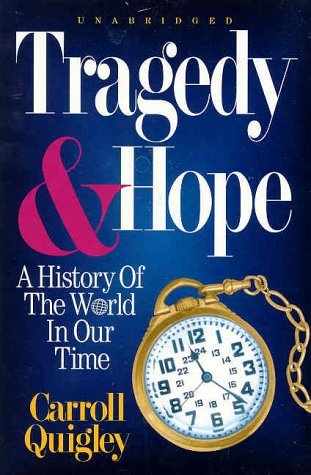 With many conspiracies flying around due to the COVID-19 pandemic, this is a good alternative history to what many are accustomed to. Tragedy and Hope shows the years 1895-1950 as a period of transition from the world dominated by Europe in the nineteenth century to the world of three blocs in the twentieth century. Professor Quigley, who taught history at Georgetown university was considered the eminent theorist of the evolution of civilizations and in 1348 pages he examines the nature of global transition through two world wars and a worldwide economic depression. He also argues that an Anglo-American banking elite have worked together for centuries to spread certain values globally and are the real levers of power behind the scenes. Professor Quigley outlines the rise of the international bankers and their oppression of the poor. This book shows with much detail that governments act for the benefit of the owners of money to the detriment of the poor. This book is a long read but it’s an alternative, although long read of history.
With many conspiracies flying around due to the COVID-19 pandemic, this is a good alternative history to what many are accustomed to. Tragedy and Hope shows the years 1895-1950 as a period of transition from the world dominated by Europe in the nineteenth century to the world of three blocs in the twentieth century. Professor Quigley, who taught history at Georgetown university was considered the eminent theorist of the evolution of civilizations and in 1348 pages he examines the nature of global transition through two world wars and a worldwide economic depression. He also argues that an Anglo-American banking elite have worked together for centuries to spread certain values globally and are the real levers of power behind the scenes. Professor Quigley outlines the rise of the international bankers and their oppression of the poor. This book shows with much detail that governments act for the benefit of the owners of money to the detriment of the poor. This book is a long read but it’s an alternative, although long read of history.
Michelle Zhang
China’s Economy: What Everyone Needs to Know
Arthur Kroeber
2016
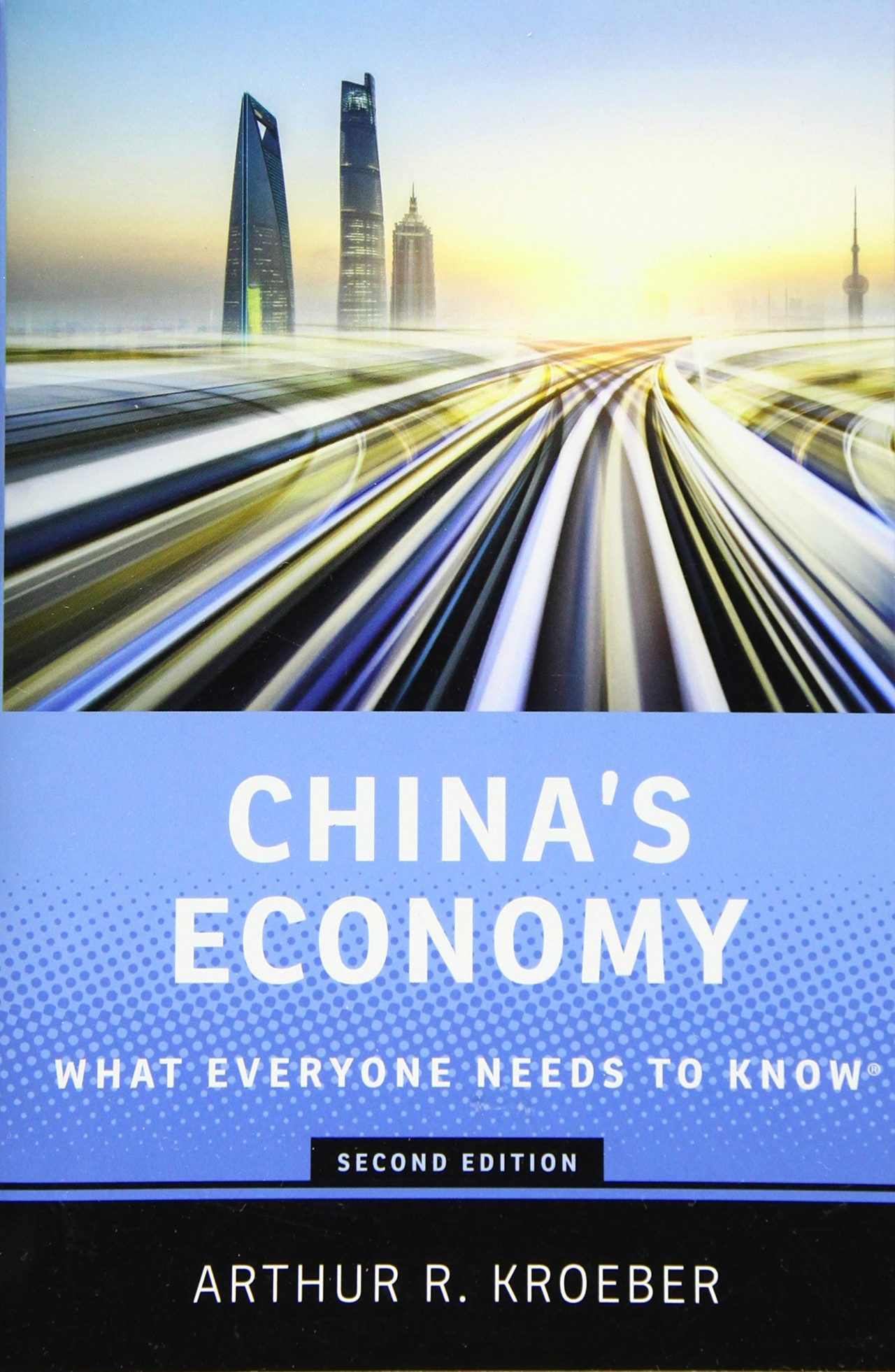 This book is your one stop shop on China’s recent development, how all the different sectors came together and the policies undertaken to get there. The book is written in the form of Q&A’s which make it much easier to understand and it’s organised into chapters from fiscal policy to industrial development. Kroeber comprehensively examines China’s industrial policy and export boom. He attributes China’s export boom to its historical advantage, recent luck, and appropriate policies. For example, China has a large population and commercial tradition. China opened up to trade just when long-distance shipping costs steeply fell and companies were building global production chains. The book provides a comprehensive analysis on China’s economy and the Q&A format provides a refreshing new approach to explaining what can be a complex subject.
This book is your one stop shop on China’s recent development, how all the different sectors came together and the policies undertaken to get there. The book is written in the form of Q&A’s which make it much easier to understand and it’s organised into chapters from fiscal policy to industrial development. Kroeber comprehensively examines China’s industrial policy and export boom. He attributes China’s export boom to its historical advantage, recent luck, and appropriate policies. For example, China has a large population and commercial tradition. China opened up to trade just when long-distance shipping costs steeply fell and companies were building global production chains. The book provides a comprehensive analysis on China’s economy and the Q&A format provides a refreshing new approach to explaining what can be a complex subject.
Wasif Chaudry
Armies of Sand: The Past, Present, and Future of Arab Military Effectiveness
Kenneth Pollack
2019
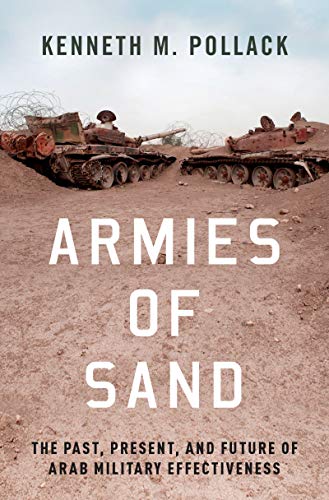 Kenneth Pollack is an expert on Middle Eastern conflicts and political-military affairs. In this book he combines his 30 years of study and analysis of Arab military effectiveness since 1945. Pollack studies both the failures and successes of Arab conventional and non-state military forces in the numerous wars and insurgencies in the region. Pollack exhaustively explores four explanations of Arab military ineffectiveness: their reliance on Soviet military doctrine, the politicisation of the officer corps, the economic underdevelopment of Arab societies and Arab culture. His research led him to conclude that patriarchy, group loyalty, obedience, and the fear of failure—all characteristics re-enforced by the Arab educational system—as the leading explanation of ineffectiveness. Due to these reasons Pollack believes Arab armies have been inhibited to innovate and win on the modern battlefield. He uses the 1967 and 1973 Arab-Israeli wars, to show how cultural and societal issues allowed a smaller but more creative and adaptable Israeli military to defeat numerically superior armies. Pollack offers a perceptive evaluation of the Arab military organisation that has experienced a measure of battlefield success – Hezbollah. Pollack finds them more adaptable and flexible than conventional Arab militaries, allowing them to better integrate high-tech weaponry with small unit tactical proficiency to outperform larger and better equipped opponents. Pollack believes the Islamic motivation assisted Hezbollah’s unit cohesion and willingness to stand and fight. Overall, Pollack provides a detailed and interesting account of the Arab armies, even though you may disagree with some of his conclusions.
Kenneth Pollack is an expert on Middle Eastern conflicts and political-military affairs. In this book he combines his 30 years of study and analysis of Arab military effectiveness since 1945. Pollack studies both the failures and successes of Arab conventional and non-state military forces in the numerous wars and insurgencies in the region. Pollack exhaustively explores four explanations of Arab military ineffectiveness: their reliance on Soviet military doctrine, the politicisation of the officer corps, the economic underdevelopment of Arab societies and Arab culture. His research led him to conclude that patriarchy, group loyalty, obedience, and the fear of failure—all characteristics re-enforced by the Arab educational system—as the leading explanation of ineffectiveness. Due to these reasons Pollack believes Arab armies have been inhibited to innovate and win on the modern battlefield. He uses the 1967 and 1973 Arab-Israeli wars, to show how cultural and societal issues allowed a smaller but more creative and adaptable Israeli military to defeat numerically superior armies. Pollack offers a perceptive evaluation of the Arab military organisation that has experienced a measure of battlefield success – Hezbollah. Pollack finds them more adaptable and flexible than conventional Arab militaries, allowing them to better integrate high-tech weaponry with small unit tactical proficiency to outperform larger and better equipped opponents. Pollack believes the Islamic motivation assisted Hezbollah’s unit cohesion and willingness to stand and fight. Overall, Pollack provides a detailed and interesting account of the Arab armies, even though you may disagree with some of his conclusions.
Mozimmal Hussain
Why Liberalism Failed
Patrick J. Deneen
2018
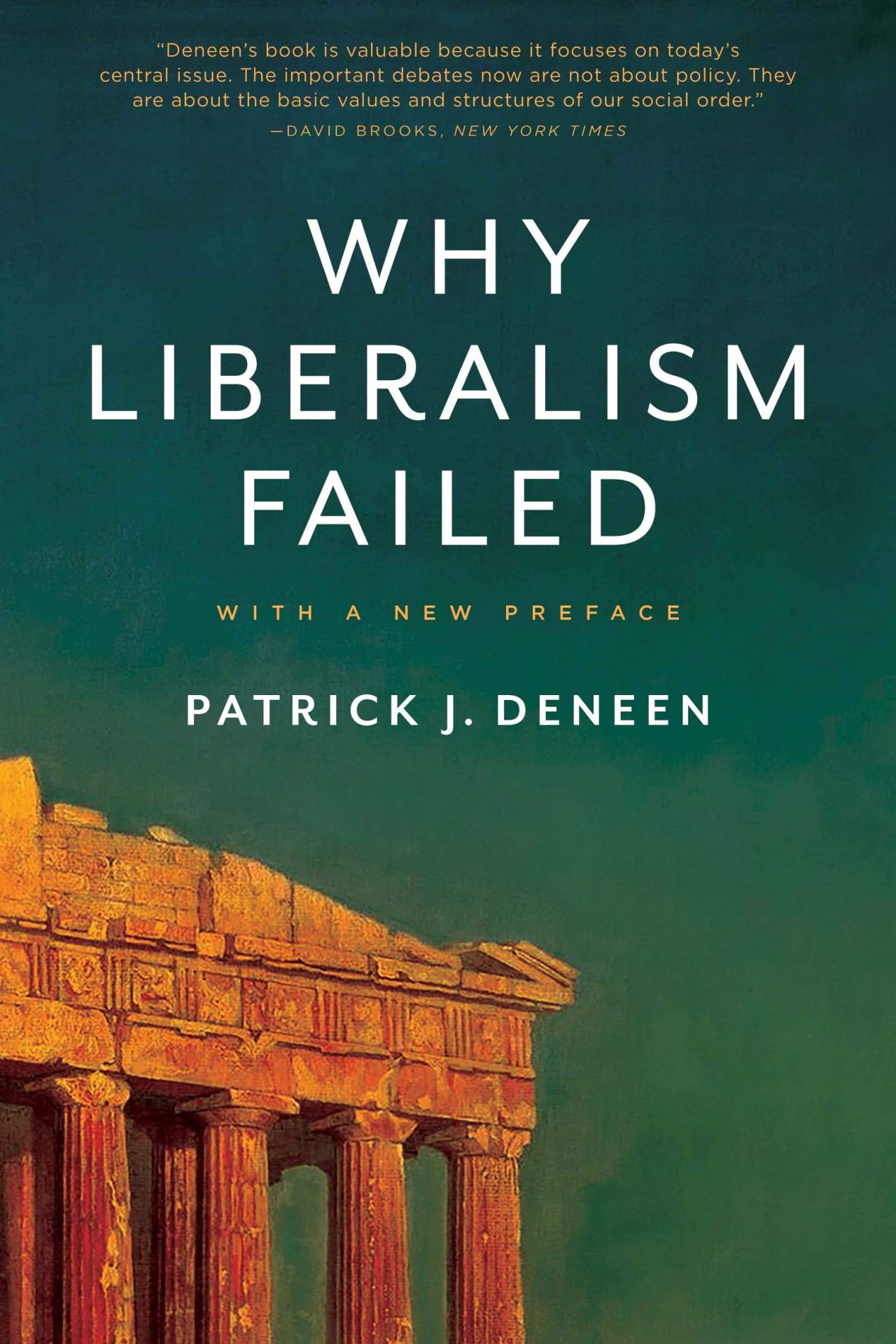 After the initial triumphalism of the 1990s post the demise of the USSR, the Western world witnessed the rise of authoritarian culture and right wing movements with even the most robust democracies suffering from dysfunction and defection. Many analysts and political commentators have written books to explain the phenomena, bemoaning the decline of Liberalism and attempting to explain its failure. (e.g. The Retreat of Western Liberalism by Edward Luce, Age of Anger by Pankaj Mishra etc).
After the initial triumphalism of the 1990s post the demise of the USSR, the Western world witnessed the rise of authoritarian culture and right wing movements with even the most robust democracies suffering from dysfunction and defection. Many analysts and political commentators have written books to explain the phenomena, bemoaning the decline of Liberalism and attempting to explain its failure. (e.g. The Retreat of Western Liberalism by Edward Luce, Age of Anger by Pankaj Mishra etc).
In the most provocative attack on liberalism, ‘Why Liberalism Failed’, published in 2018 with an expanded paperback this year, Deneen recounts the widespread disaffection from democratic politics and governance, the growing distrust of the global marketplace, the erosion of values and virtues such as loyalty and self-restraint, and the weakening of family and community. He blames it all on what he calls “liberalism.” Liberalism, as he defines it, encompasses the orthodoxy of political elites, whether they lean to the left or the right.
Pointing to liberalism’s inherent flaws, he says that it is built on a foundation of contradictions: it trumpets equal rights while fostering incomparable material inequality; its legitimacy rests on consent, yet it discourages civic commitments in favour of privatism; and in its pursuit of individual autonomy, it has given rise to the most far-reaching, comprehensive state system in human history.
His solutions to stem the crisis, Dineen insists that mere tinkering won’t alleviate the deep rot in the liberal project. He says we need to envision a future after liberalism, where local, preferably religious communities tend to the land and look after their own. Deneen concludes by insisting the only proper response to liberalism is “to transform the household into a small economy.”
Shabih Ul Hasan


